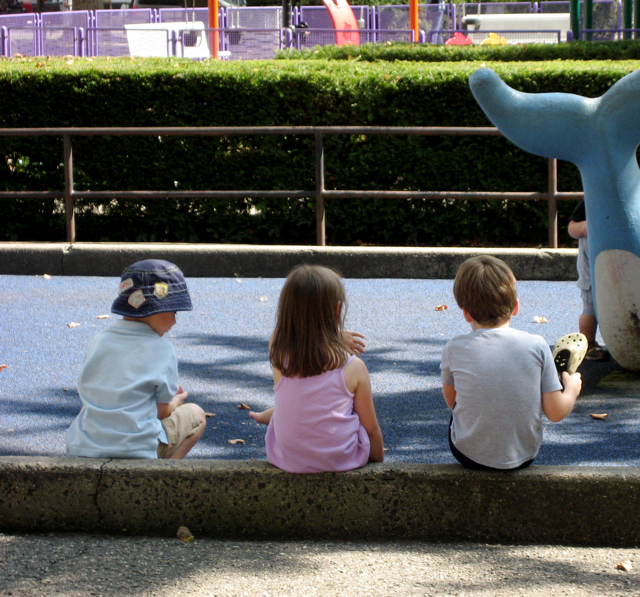Transition: a story in two (possibly three) parts
 Sunday, October 11, 2009 at 10:12PM
Sunday, October 11, 2009 at 10:12PM 
Part One: We are about a month into this school year. Perhaps transition is a funny word to choose to describe these weeks. From the outside it might seem that since WJ is repeating a year, staying in the same classroom with the same teachers, little has changed.
It has, however, been an adjustment. The things that are different are significant from WJ’s point of view. The transition has revolved partly around the fact that his classmates, the Two Best Friends included, mostly went on to kindergarten without him. In this we find the first part of the story. How has it been for WJ to be left behind?
At first, it was hard. Harder than I imagined, actually. People said, and I soaked myself in the poisoned Kool-Aid of this hope, that children this age would not even notice when a friend repeats a year. As an educator, I knew in my heart that this hope was vastly underestimating The Child. But I hoped it for the sake of ease and, admittedly, avoidance.
The hope was in vain. The Child is not dull; The Child is curious and seeks to understand and order his experience. We have at some point in these weeks encountered every classmate of WJ’s who went on to the kindergarten class in our school. All but one has greeted him excitedly and then asked, within the first several seconds of their interaction, “Why aren’t you in kindergarten?” After either WJ or I reply with our carefully crafted answers, the children naturally follow with, “But aren’t you five?”
I knew in my heart that the children would notice both his absence from their classroom and his presence in the preschool, but it was somehow a surprise to me that they would ask about it with such consistency. I guess I thought perhaps WJ’s peers would not care, that it would not matter, per se, would not be a big deal. I believed that their immature social constructs would translate into an innocence about hierarchy and such.
But it does matter to them. It is with great concern and confusion that the former classmates consider WJ and our answers to their questions. I am sure there is a sociology or anthropology project in here somewhere. WJ is to his five-year-old peers an incongruity to be investigated. Furrowed eyebrows abound and if we offered magnifying glasses, I believe the children would accept them for a closer look.
WJ has been standing tall through the Playground Inquisition, but it has not been entirely easy. He is not dull either. His eyes dart to me often and when he begins making funny, twitching faces I intervene with a matter of fact tone and a quick change of the subject.
I am glad for WJ’s bravery and resilience and for our continued sense of peace about the decision for him to wait for kindergarten. I believe WJ has moved beyond his sadness about our decision but it is not quite a comfortable fit yet. It is a little like his new school pants that still need to be cuffed.









